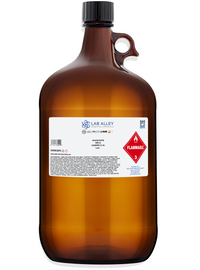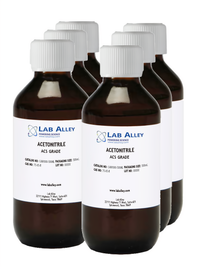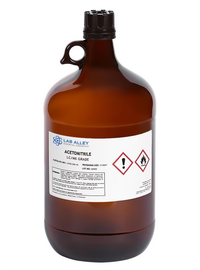Acetonitrile
Commonly Used As A Laboratory Solvent
About Acetonitrile
Acetonitrile is an aliphatic, polar aprotic organic solvent. Structurally, it is a linear molecule with the same constituents as hydrogen cyanide except that the hydrogen has been replaced by a methyl group. It is usually produced as a byproduct of acrylonitrile synthesis.

It has widespread use as a laboratory solvent, especially as one of the most common choices for HPLC mobile phase, as well as for the extraction of hydrocarbons. In the Food Industry, Acetonitrile is used to extract fatty acids from oils (e.g. fish or vegetables oils). In the Pharmaceutical Industry, it is used as a solvent for pharmaceutical synthesis and as a starting material for some compounds. Acute toxicity from inhalation may result in irritation of mucus membranes, while chronic exposure can disrupt the central nervous system, resulting in headaches, tremors, and loss of sensation.
Common Uses and Applications
- Hydrocarbon extraction solvent
- HPLC mobile phase
- Pharmaceutical synthesis
- Fatty acid extraction from oils
- Batteries
- Cyclic voltammetry





